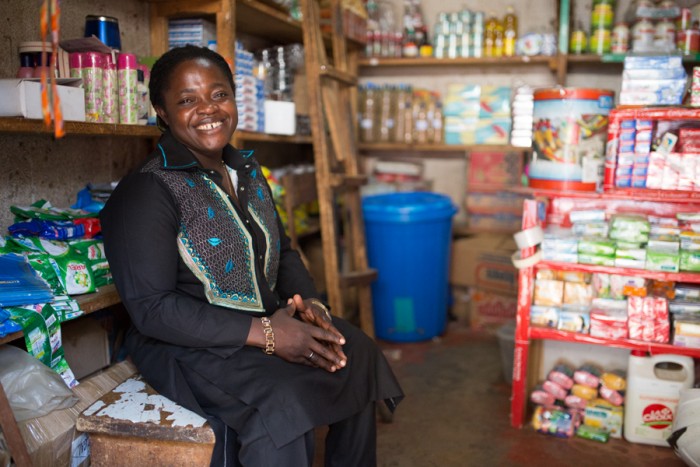October 1st, 2016 by Rachel | Tags: Disability, Peace Corps, Persons with, Persons with Disabilities of Cameroon, Photography | No Comments »
During the last seven months of my Peace Corps service, I am featuring photographs and stories of several persons with disabilities living in Cameroon. All the photos are part of a series called “Persons with Disabilities of Cameroon.” The goal of presenting photographs and their stories is to create better awareness about the plights that persons with disabilities face in a developing country. When I return to the US, I hope to exhibit this series in a gallery and publish a book to educate others about persons with disabilities living in developing countries as this topic is so rarely discussed in the media.
Ruth Acheinegeh has been my official Peace Corps counterpart for the past two years. She is a leader for the disability community, being the president of Northwest Association of Women with Disabilities, President of Special Needs Entrepreneur, and Treasurer of Coordinating Unit of Association of Persons with Disabilities. She traveled to the US twice to receive trainings from Mobility International USA on how to lead the changes in disability rights for women with disabilities. She has also been to Turkey and Brazil to attend conferences on women’s rights. Ruth shares her struggles about being a leader for disability rights in Cameroon.
“I am physically challenged. I use two crutches to walk. My left leg is extremely short than the right one. I also use braces to help with my movement. I became disabled when I was three years old and I was told it was quinimax injection which was processed at the hospital. I was later on told it was polio. ”
“From when I was growing up in the Northwest region, most people that were outspoken were men and among these men were men with disabilities. So we women with disabilities find very difficult to discuss our own personal issues. So that is one of the reasons I took upon to see how women could have a space of their own. I got an opportunity to do it though leadership training with Mobility International USA in 2010. That actually gave me skills to start up Northwest Association of Women with Disabilities in Bamenda. But it was not easy for women with disabilities to come together to share their experiences. But I keep insisting one on one with each women to advocate. In 2012, we were able to have about 30 women who accepted to have a place of their own to talk with each other. But the most difficult challenge I face is having these women portray leadership skills. Their self esteem is still very low. They still lack capacity building. Their living standard is still very low. This makes them not to be socially active in development activities for their communities. But then a few of them are able to carry out activities. Diversity among these grassroots women is also a big challenge. Environmental barriers is also keeping these women behind. A good number of these women lack assistive devices. So this make my struggle for inclusion a big big challenge.”
“Personally my challenge has been the fact that I am a woman and a woman with disability limits me to have partners to promote my work in communities. Also, I use my business finance for most of my activities. It also makes me not to have more time for my business. And also not having more time to advocate.”

